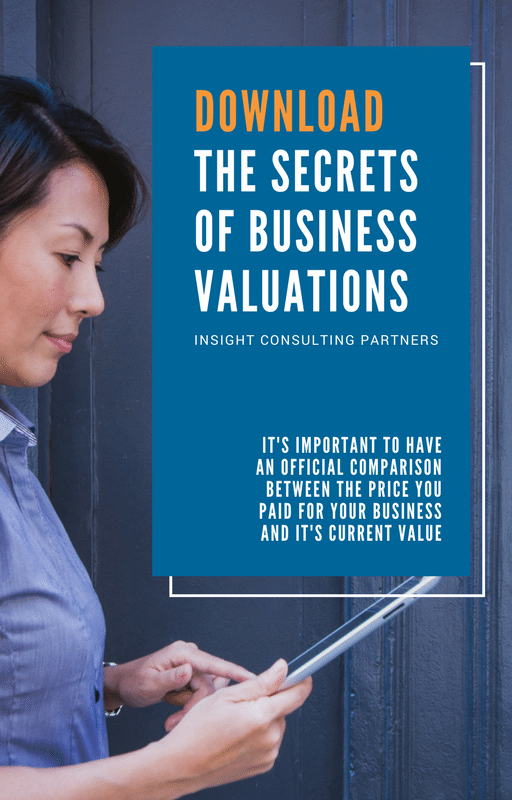Here at WA Business Valuations, we understand that navigating the world of business valuation questions can be confusing. That’s why we’re here to answer your most frequently asked questions, ensuring you have the information you need to make informed decisions about your Perth business.
Question 1: When should I consider getting my business valued?
A business valuation is crucial whenever a significant decision hinges on its value. This could include a sale, buyout, establishing an Employee Stock Ownership Plan (ESOP), an acquisition, resolving a dispute, or even filing taxes. Using an inaccurate valuation can have serious consequences, so it’s important to get it right.
Question 2: Isn’t a business appraisal the same as a valuation?
In the world of business valuation, the terms “appraisal” and “valuation” are used interchangeably. However, it’s important to understand the specific scope of analysis and the level of detail included in the report, regardless of the terminology used.
Question 3: What different types of value are used in business valuations?
The term “value” isn’t one-size-fits-all in business valuation. Different situations require different “standards of value.” Here are some of the most common:
-
Fair Market Value (FMV): This refers to the price a willing buyer and seller would agree upon in an arm’s length transaction, with neither party under pressure to buy or sell. FMV is commonly used for income and estate tax purposes.
-
Fair Value: This standard is typically used in legal cases involving shareholder disputes or divorce proceedings. Its definition and application can vary depending on the specific case and jurisdiction.
-
Investment Value: This reflects the value a specific buyer assigns to your business based on their investment goals and expectations. It often considers potential synergies if your business merges with another. Investment value is frequently used in mergers and acquisitions.
Question 4: Can I trust WA Business Valuations to keep my information confidential?
Absolutely. We have a strict policy of complete confidentiality regarding our valuation engagements. You can even retain us through your attorney to establish client-attorney privilege.
Question 5: Are your valuations completely objective?
Yes. Our team of experts is committed to objectivity, free from any conflicts of interest or hidden agendas. Our focus is on providing a fair and accurate assessment of your business’s value.
Question 6: Do you take intangible assets into account during valuations?
Absolutely. Intangible assets, such as customer lists, licenses, intellectual property, and brand reputation, can significantly impact your business’s value. We carefully consider all relevant assets, both tangible and intangible, when determining your business’s worth.
Question 7: Do I need a valuation if I’m gifting shares of my company to a family member?
In most cases, yes. If the ATO audits the gift, the burden of proof regarding the value of those shares falls on you. A qualified business valuation from WA Business Valuations can provide the ATO with the necessary documentation to demonstrate the legitimacy of the valuation. It’s always best to consult with your CPA for definitive advice.
Question 8: I’m considering a buyout with my business partner. Can you value my ownership interest?
Yes, we can. To provide the most accurate valuation, we’ll need to review your existing buy-sell agreement, if applicable. A buy-sell agreement outlines the process for ownership transfer within a company. If you don’t have one, we can still value your interest, but both parties will need to agree on the appropriate standard of value.
Question 9: What’s the difference between equity and invested capital?
Business valuations often focus on either equity interest or invested capital. Equity essentially refers to your company’s net worth, calculated as assets minus liabilities. Invested capital, sometimes called enterprise value or asset value, represents the debt-free value of your business. A simple analogy would be a real estate appraiser valuing a property at $500,000, without considering any outstanding mortgage. That $500,000 represents the invested capital value. Equity value is then determined by subtracting the outstanding debt (interest-bearing debt in a business scenario) from the invested capital.
Question 10: What do you mean by a “business valuation approach”?
A valuation approach is a general methodology used to determine value. It often involves multiple business valuation methods tailored to your specific situation.
Question 11: How much detail do I need in a business valuation?
The level of detail required in your business valuation depends on the purpose. Here’s a breakdown:
- Limited Scope Calculation Analysis: This option is suitable for situations where you need a ballpark estimate for internal use.
- Full Analysis and Summary/Full Report: These are typically required for legal purposes like IRS audits or shareholder disputes. They involve a comprehensive analysis and a detailed report outlining the valuation methodology and justification.
- Summary Report: This level of detail is often appropriate when a third-party investor relies on the report, such as during a potential acquisition.
WA Business Valuations will recommend the most suitable service level after our initial consultation, which is always free and confidential.
Question 12: How long does a typical business valuation take?
Most comprehensive business valuations take approximately 3-4 weeks after we receive all the necessary information from you. The timeframe can vary depending on factors like the complexity of your business, the accuracy of the provided information, and our current workload. We understand the importance of timeliness and can often expedite reports when necessary.
We at WA Business Valuations are committed to providing you with the knowledge and guidance you need to navigate the business valuation process with confidence. Contact us today for a free consultation and let our team of experts help you unlock the true value of your Perth business.
Read our other blog post: Top 10 Strategies to Boost Business Value
Connect with our expert valuer, Adrien Giraud, to learn more.

